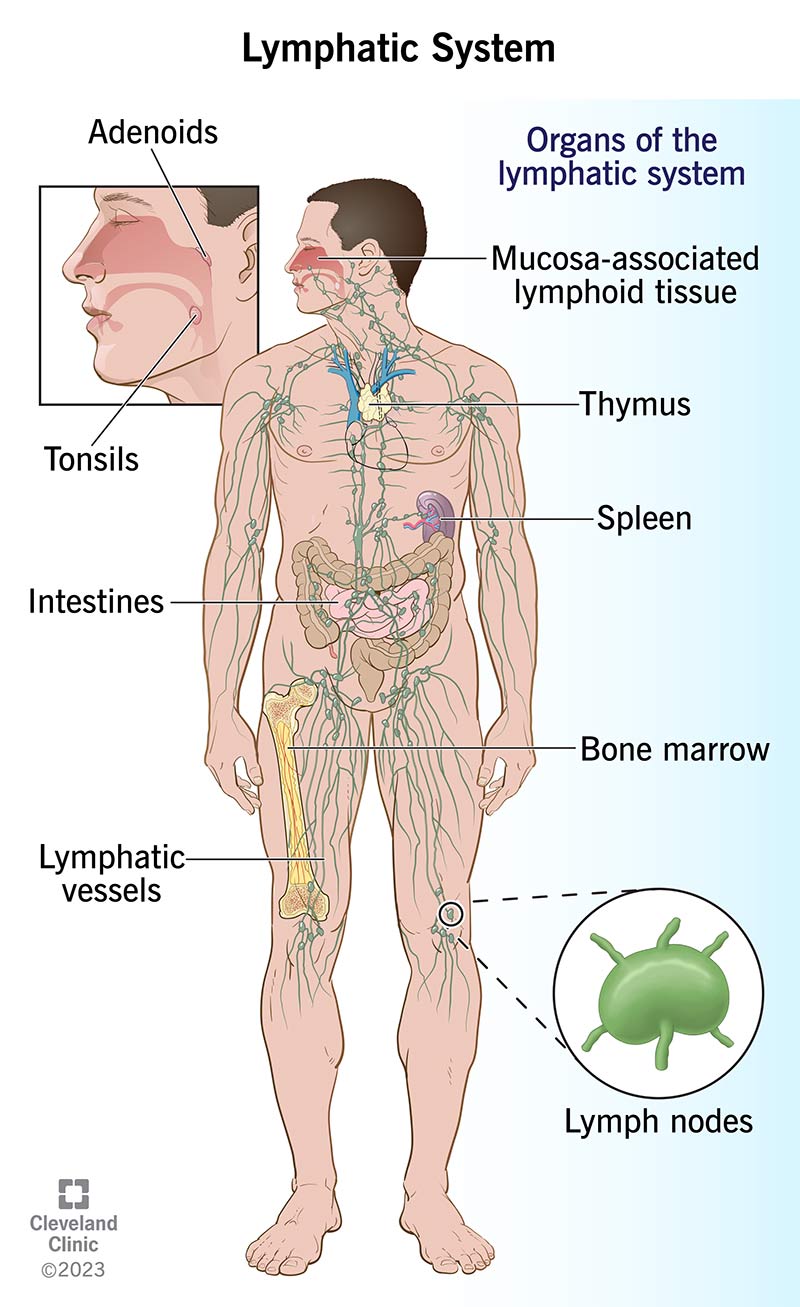
Navigating the Intricate Network: The Lymphatic System Unveiled
The human body is an intricate network of systems, each with its own unique role and function. Among these, the lymphatic system stands as a vital yet often underappreciated player in maintaining overall health. This comprehensive article seeks to shed light on the lymphatic system, exploring its anatomy, functions, importance, and the critical role it plays in supporting the immune system.
Anatomy of the Lymphatic System
The lymphatic system is an extensive network of vessels, nodes, and organs that transport a fluid called lymph. Lymph is a colorless, watery fluid that closely resembles blood plasma and is rich in white blood cells, primarily lymphocytes. It circulates throughout the body, performing several essential functions:
1. Lymphatic Vessels
Lymphatic vessels, similar in structure to blood vessels, form a complex web throughout the body. They collect excess interstitial fluid from tissues and transport it back to the bloodstream. These vessels are strategically located in almost all tissues, with notable exceptions being the central nervous system and some epithelial tissues, such as the cornea.
2. Lymph Nodes
Lymph nodes are small, bean-shaped structures scattered throughout the lymphatic system. They serve as filter stations where lymph is cleansed of pathogens, debris, and abnormal cells. Lymphocytes within lymph nodes play a crucial role in immune responses.
3. Lymphatic Organs
The lymphatic system also includes lymphatic organs, which are more substantial and more specialized in their functions. The primary lymphatic organs are the thymus and bone marrow, where white blood cells called lymphocytes are produced and matured. Secondary lymphatic organs include the spleen and lymphoid tissues found in the tonsils and Peyer’s patches in the small intestine. These organs house lymphocytes and serve as sites for immune responses.
Functions of the Lymphatic System
The lymphatic system has several vital functions in the human body:
1. Fluid Balance
One of the lymphatic system’s primary roles is to maintain fluid balance by collecting excess interstitial fluid that leaks from blood capillaries and returning it to the bloodstream. This prevents the buildup of tissue swelling, known as edema.
2. Immune Defense
The lymphatic system is intimately connected with the immune system. Lymph nodes and lymphoid organs are hubs for immune cell activity. When pathogens such as bacteria or viruses enter the body, lymphocytes in these nodes are activated to mount an immune response, producing antibodies and coordinating the defense against invaders.
3. Lipid Absorption
In the small intestine, the lymphatic system aids in the absorption of dietary fats. Specialized lymphatic vessels called lacteals absorb digested fats, forming a milky substance called chyle, which is eventually transported to the bloodstream.
4. Removal of Cellular Waste
Lymphatic vessels collect and transport cellular waste, debris, and dead cells away from tissues, aiding in the body’s cleanup processes.
5. Transportation of Immune Cells
The lymphatic system acts as a transportation network for immune cells, allowing them to travel to areas of infection or inflammation quickly.
Importance in Immunity
The intimate connection between the lymphatic and immune systems underscores the critical role of the lymphatic system in defending the body against infections and diseases. Lymph nodes are hubs for immune cell activation and communication, and they help coordinate the body’s defense mechanisms.
When the body encounters pathogens, such as bacteria or viruses, immune cells in lymph nodes initiate responses that can include the production of antibodies, the release of cytotoxic T cells to destroy infected cells, and the recruitment of additional immune cells to the site of infection. This coordinated effort helps the body fend off threats to its health.
Lymphatic System Disorders
Disruptions in the normal functioning of the lymphatic system can lead to various health issues. Some common lymphatic system disorders include lymphedema, where a blockage or damage to lymphatic vessels causes fluid buildup and swelling, and lymphoma, a type of cancer that affects lymphocytes.
Conclusion
The lymphatic system, often operating behind the scenes, is an unsung hero in maintaining our health. Its intricate network of vessels, nodes, and organs serves essential functions in fluid balance, immune defense, and waste removal. Understanding the vital role of the lymphatic system highlights the significance of maintaining its health and underscores its contribution to the body’s overall well-being. As we unravel more of its complexities, the lymphatic system continues to be a subject of fascination and ongoing research in the field of biology and medicine.



